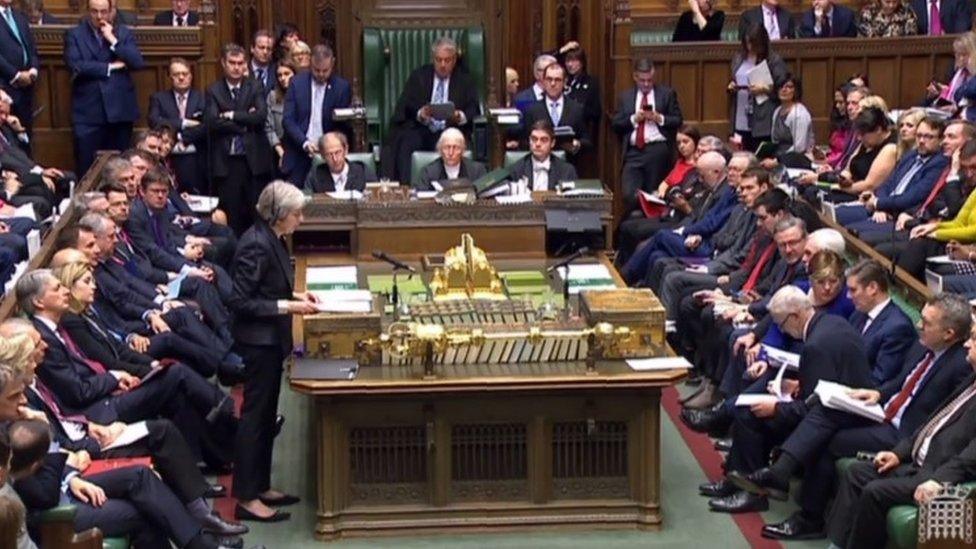Brexit: Support for Theresa May's deal seems to be shrinking
- Published
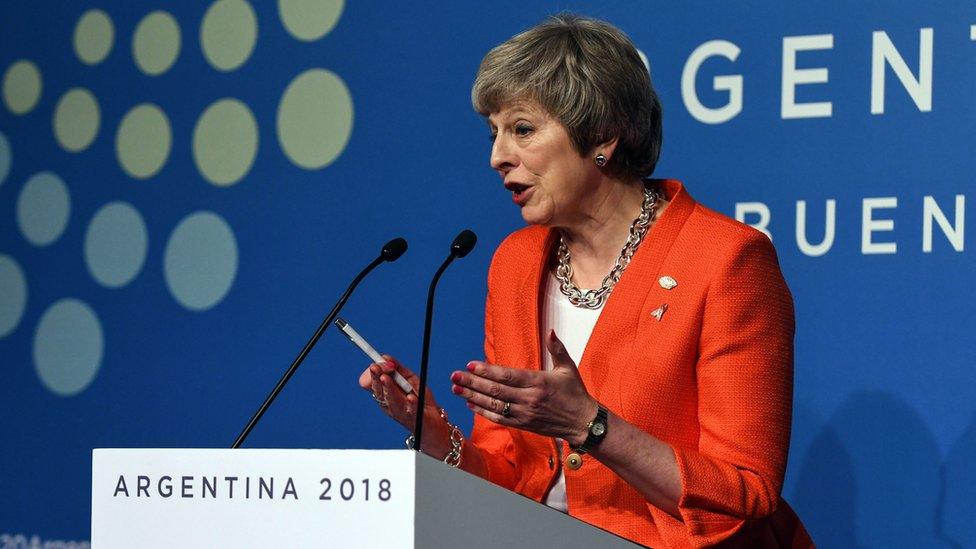
Theresa May sought to reassure world leaders that her Brexit deal is "good for the global economy" at the G20 summit
There's been something completely surreal about watching Theresa May this week - hobnobbing with world leaders, discussing future trade arrangements and climate change, confronting the Saudi Crown Prince over the murder of the journalist Jamal Khashoggi.
But her efforts on all of those important discussions may prove entirely irrelevant if, in the next nine days, she can't persuade enough of her colleagues at home to come on board.
Because support for the prime minister's Brexit compromise seems to be shrinking, rather than growing.
If Theresa May acknowledges it in private, she certainly won't touch that notion in public.
The prime minister did not even mention the latest minister to quit by name, preferring, perhaps rather nervously, again to defend the agreement that she has reached with the European Union.
She admitted the next fraught week is vital and vowed to keep making the case.
Mrs May will arrive back in the UK at lunchtime on Sunday, facing perhaps the most important week of her career.
And even if she won't countenance conversations about a plan B, her colleagues certainly are.
Cabinet ministers are talking amongst themselves about how to survive if the vote falls.
One senior cabinet minister told me, when the moment comes the prime minister will have to be pragmatic. But for now, she gets "strength from absorbing humiliation".
Number 10's grip is shaky, very shaky - with one senior Tory telling me it almost seems as if "there is no government at all".
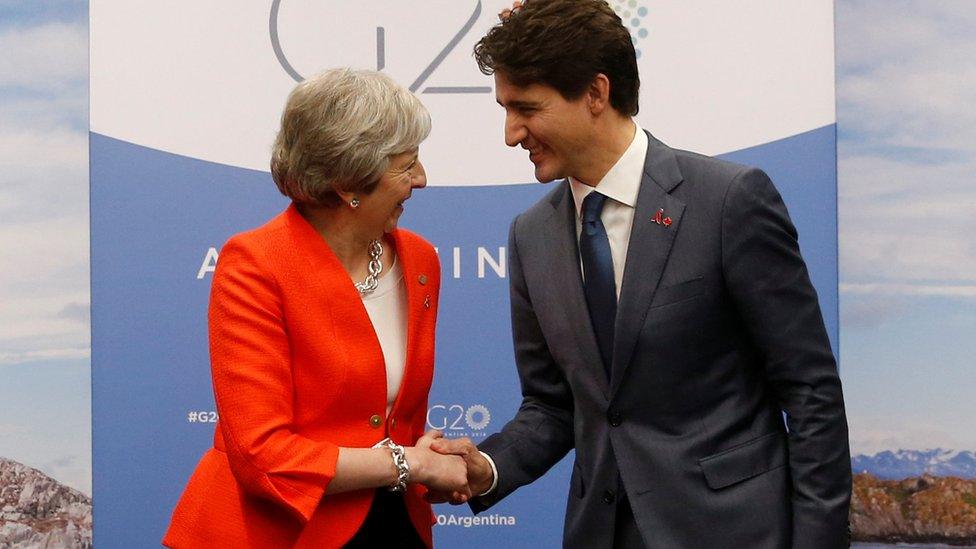
During the G20 summit, Mrs May met leaders, including Canadian Prime Minister Justin Trudeau, to discuss trade after Brexit
But asked if this might be her last overseas trip, the prime minister insisted "there's a lot more for me to do".
A senior member of the government told me not only would she not have discussions about losing the vote - only about how to win it - but that those who believed that Theresa May would quit if her deal fell were misreading her.
They said that she would "not go until she was forced to go" and, contrary to some of the speculation in Westminster, even a heavy defeat for her plan would not automatically see her depart.
Of course, many of her critics - and the opposition parties - would beg to differ.
Traditionally it's impossible to see how a prime minister of a minority government would be able to survive a defeat of their main policy. But one Number 10 insider commented: "Stranger things have happened - most of them, in the last year."
But while there are conversations, there seems to be no fixed plan.
There is no "active conspiring" about what to do if the vote falls.
But I'm told, if the vote is lost by less than 50, there have been informal discussions about seeking some kind of additional clarifications from the EU then holding another vote relatively soon.
If the defeat were to be more significant than that, which seems feasible, then cabinet might take more time to regroup and work out their next moves.
As has been widely reported, there are big differences in cabinet over what to do next.
And of course, officially, no one in government would reveal any of their planning.
But don't be in any doubt about how important the next week is - for Theresa May, for Westminster, and of course, most importantly of all, for the public.
- Published1 December 2018
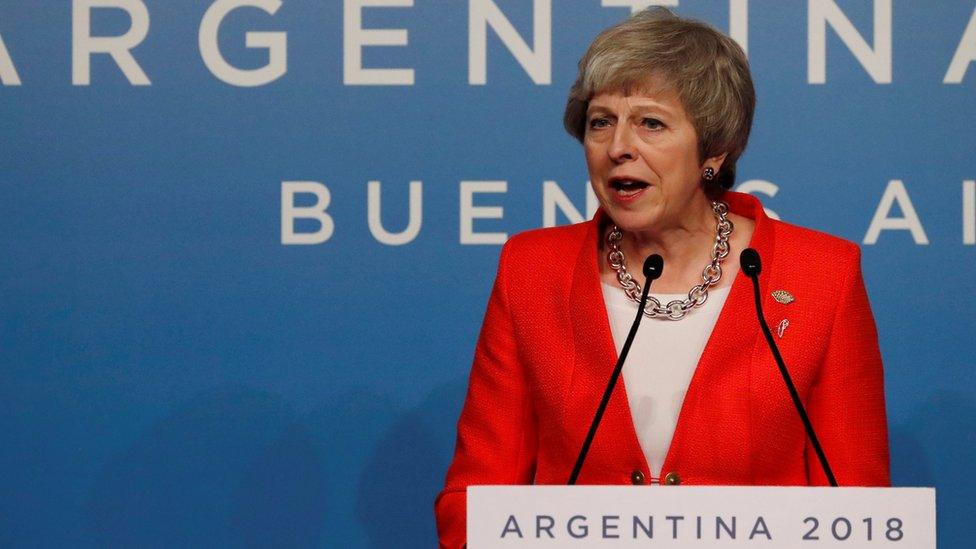
- Published5 December 2018
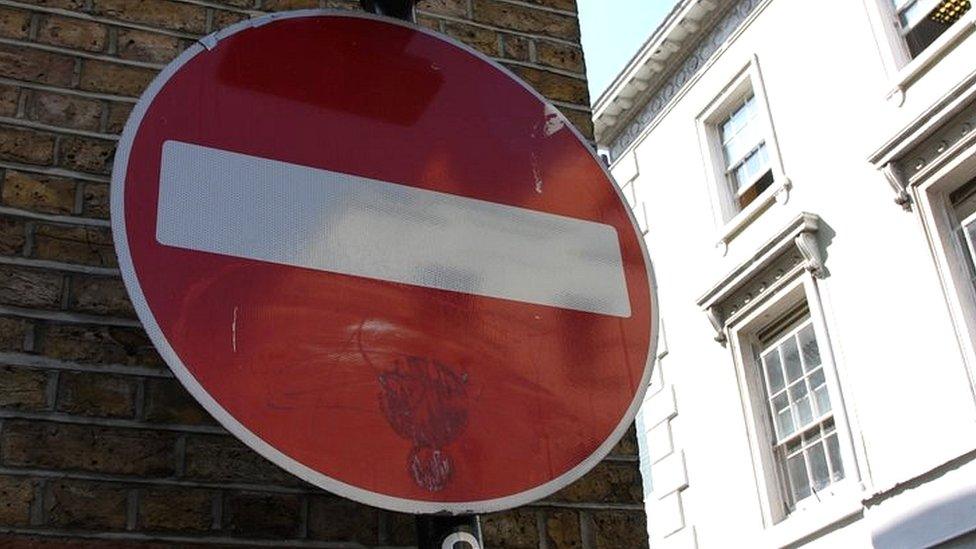
- Published30 July 2019

- Published26 November 2018
